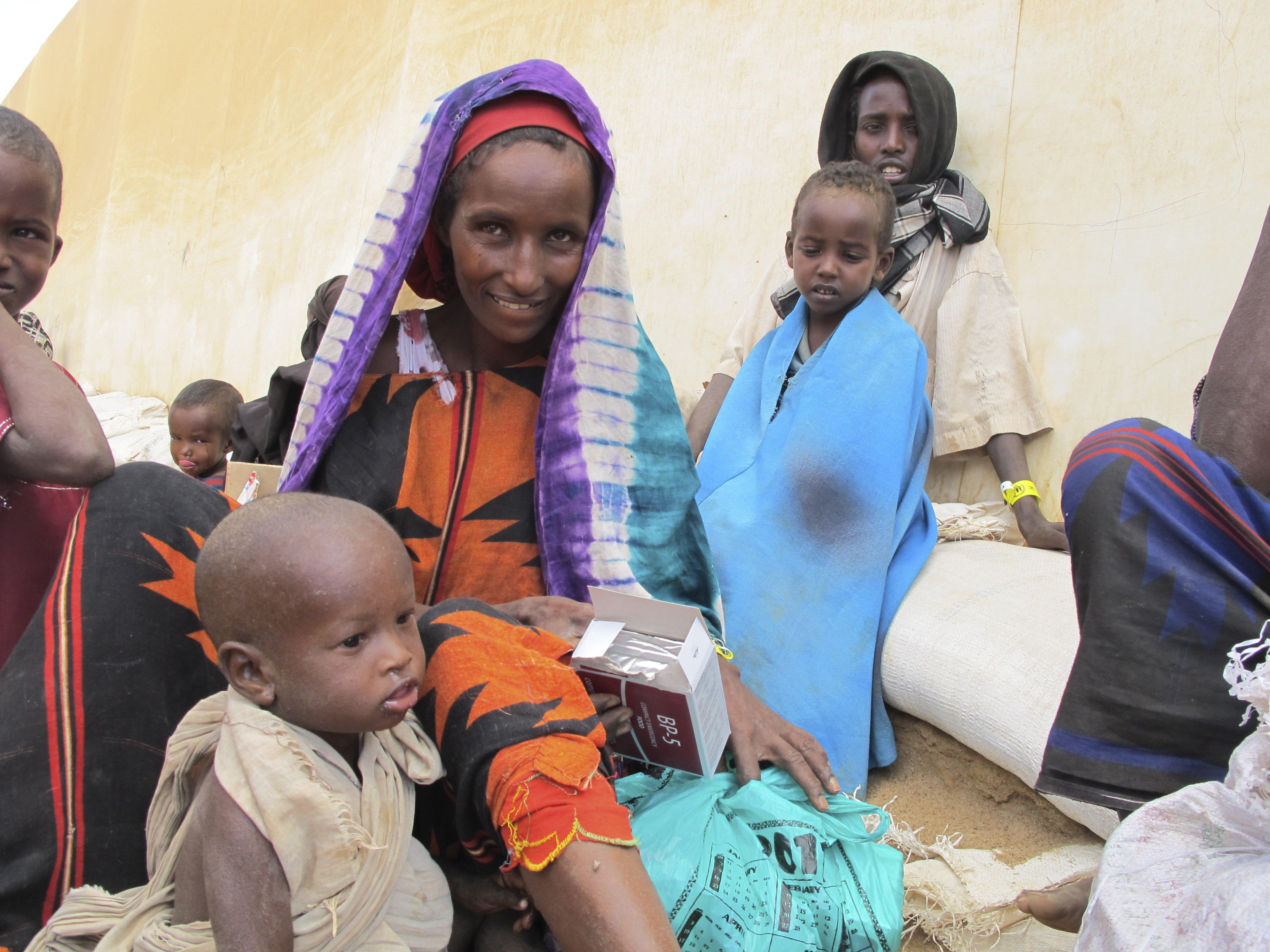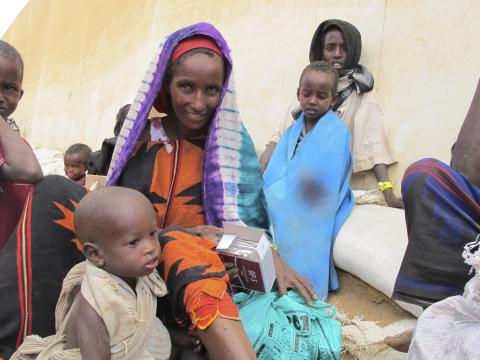A small-quantity, lipid-based nutrient supplement to reduce anaemia and stunting among refugees in the Horn of Africa
Research snapshot1
 Stunting and micronutrient malnutrition are persistent public health problems in refugee populations. As one approach to address these issues, UNHCR and its partner organisations implement blanket supplementary feeding programmes. The evidence base for the efficacy and effectiveness of a small quantity of lipid-based nutrient supplement (LNS), Nutributter®, in reducing stunting and anaemia is limited.
Stunting and micronutrient malnutrition are persistent public health problems in refugee populations. As one approach to address these issues, UNHCR and its partner organisations implement blanket supplementary feeding programmes. The evidence base for the efficacy and effectiveness of a small quantity of lipid-based nutrient supplement (LNS), Nutributter®, in reducing stunting and anaemia is limited.
Secondary data analysis was used to assess the effectiveness of Nutributter® distribution on anaemia and stunting in children aged 6-23 months (the programme target group) and 6-59 months (the standard age group sampled in routine nutrition surveys). Analysis was conducted using routine pre- and post-intervention cross-sectional nutrition survey data collected between 2008 and 2011 in five refugee camps in Kenya and Djibouti. Changes in total anaemia (haemoglobin<110g/L), anaemia categories (mild, moderate and severe) and stunting (height-for-age z-score<-2) were explored using available data on the Nutributter® programme and other camp nutrition and health surveillance data.
Results show a significant reduction in the prevalence of anaemia in children aged 6-23 months and 6-59 months in four of five camps and in all five camps, respectively (p<0.05). Reductions ranged from 12.4 to 23.0% and 18.3 to 29.3% in each age group. Improvements were largely due to reductions in moderate and severe anaemia and occurred where the prevalence of acute malnutrition was stable or increasing. No change in stunting was observed in four of five camps (stunting decreased significantly between baseline and end-line in Dadaab-Hagadera camp only). The replicability of findings across five sites strongly suggests that Nutributter® distribution was associated with a reduction in anaemia but not stunting among refugee children in the Horn of Africa. Benefits were not restricted to the 6-23 months old group targeted by the nutrition programme. However, anaemia remained a serious public health problem even after this intervention and additional work to define and evaluate an effective intervention package is warranted.
Footnotes
1Style S, Tondeur M, Grijalva-Eternod C, Pringle J, Kassim I, Wilkinson C, et al. (2017) Assessment of the effectiveness of a small quantity lipid-based nutrient supplement on reducing anaemia and stunting in refugee populations in the Horn of Africa: Secondary data analysis. PLoS ONE 12(6): e0177556. https://doi.org/10.1371/journal.pone.0177556

